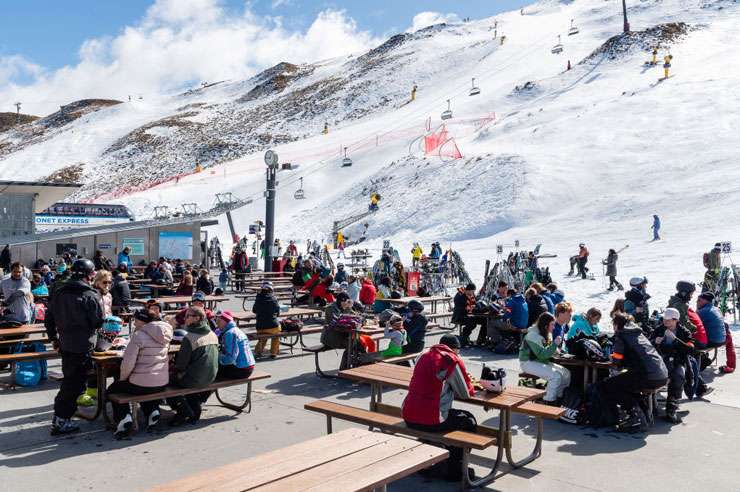Queenstown’s housing market has weathered the Covid storm remarkably well though some real estate experts are looking ahead to next year with some concern.
Economist Benje Patterson, who lives in the tourist town, says the market has defied expectations with retail spending so strong you wouldn’t know 60 per cent of normal visitors are not there.
“We’ve even had weeks where it’s approached what a normal level would be thanks to the domestic tourists coming and visiting. We’ve had a lot more domestic tourists which has helped close the gap from the lack of internationals.”
Because more domestic visitors are coming most people have kept their jobs which has kept the lights on for most households and businesses, Patterson says.
Start your property search
“When we look towards 2021 that is where you begin to get a little bit more angsty. If we’re a visitor town that has always relied on high volumes what do we do next year if we don’t have the borders open?
“There’s only so many times you can convince someone from Auckland to come and visit Queenstown within a one to two year period so it’s one of those situations where we need to begin to look more deeply at what we’re doing and not make it about 2021 and how we get through but long term as a place.
“How is it we’re going to generate income? It’s about reflecting on what our strengths are as a place that people wanted to visit and what are things about that that are also compelling as a place to invest, to work, to start businesses, to migrate, to having a longer term connection to the area.
“Some of those can still happen in a Covid world. With a lot more remote working happening it is possible for people to come and live in an area like Queenstown from a lifestyle perspective.”

Tourists at the Coronet Peak ski field near Queenstown in September this year. Photo / Getty Images
But the town does need its visitors and while locals aren’t talking about a Trans-Tasman bubble for fear of jinxing that there is a lot of hope pinned on one, Patterson says.
He says 2020 year has probably been the worst year for the housing market for the last few years but then again the market has only gone back to where it was post-GFC. It helps that Queenstown’s population has grown exponentially and also its reputation as a destination for both international and domestic tourists.
The town does face particular challenges, however, with the housing market being the most expensive in the country bar some suburbs in Auckland.
“It’s a very low wage economy with very expensive houses, and quite a young economy as well so a lot of people come into the market from not a very good starting position equity-wise,” Patterson says.
“The leveraging households have here makes them more vulnerable than the leveraging of a household in Auckland has so that’s something that worries me.”
Low interest rates and continued employment have masked those concerns but because townspeople rely on an infusion of capital from outside the question mark for next year is how resilient the town can continue to be.
Agent Adrian Snow, from the Professionals, says 2020 has been a roller-coaster year with three distinct phases.
Covid, which stopped everything for two months, was followed by a two-month recovery period – but now the market is running strongly in both residential and commercial.
Investors had been making the most of the removal of the LVR restrictions and cheap money because of low interest rates was encouraging buying activity.
A lot of buyers are from Auckland, which isn’t surprising given the strong connection between the two towns with a lot of jet traffic to the popular destination for holidays, holiday homes and investment properties.
Snow has also had strong inquiry from Australia, though this hasn’t translated to sales as yet. Queenstown is popular with people from New South Wales because it’s a close destination and, like Kiwis, Australians have had time to think about what they want from life and what to do with their money.
Expats, too, are starting to show up and are an emerging demographic for the town – but the big problem, like nearly everywhere, is a lack of stock.
“We don’t see people changing properties like they used to 10 years ago. I think first home buyers are often going straight for the good home so rather than buying themselves an old ex-renter or a doer upper or a townhouse they’re buying a building company home in a new subdivision which will be their family home for a long time, so they don’t change up any more.
“Investor buyers probably haven’t been churning property, overseas buyers probably haven’t been churning properties. I think in general mortgages are probably high and the cost of change over is high. All of those factors I think have led to low churn.”
Predicted Covid-related forced sales haven’t eventuated and now winter is over Snow thinks confidence is returning to vendors so is expecting a lift in listings and a healthy outlook for next year.

